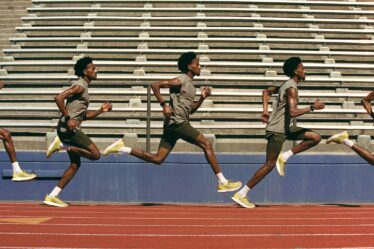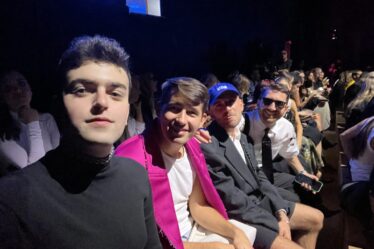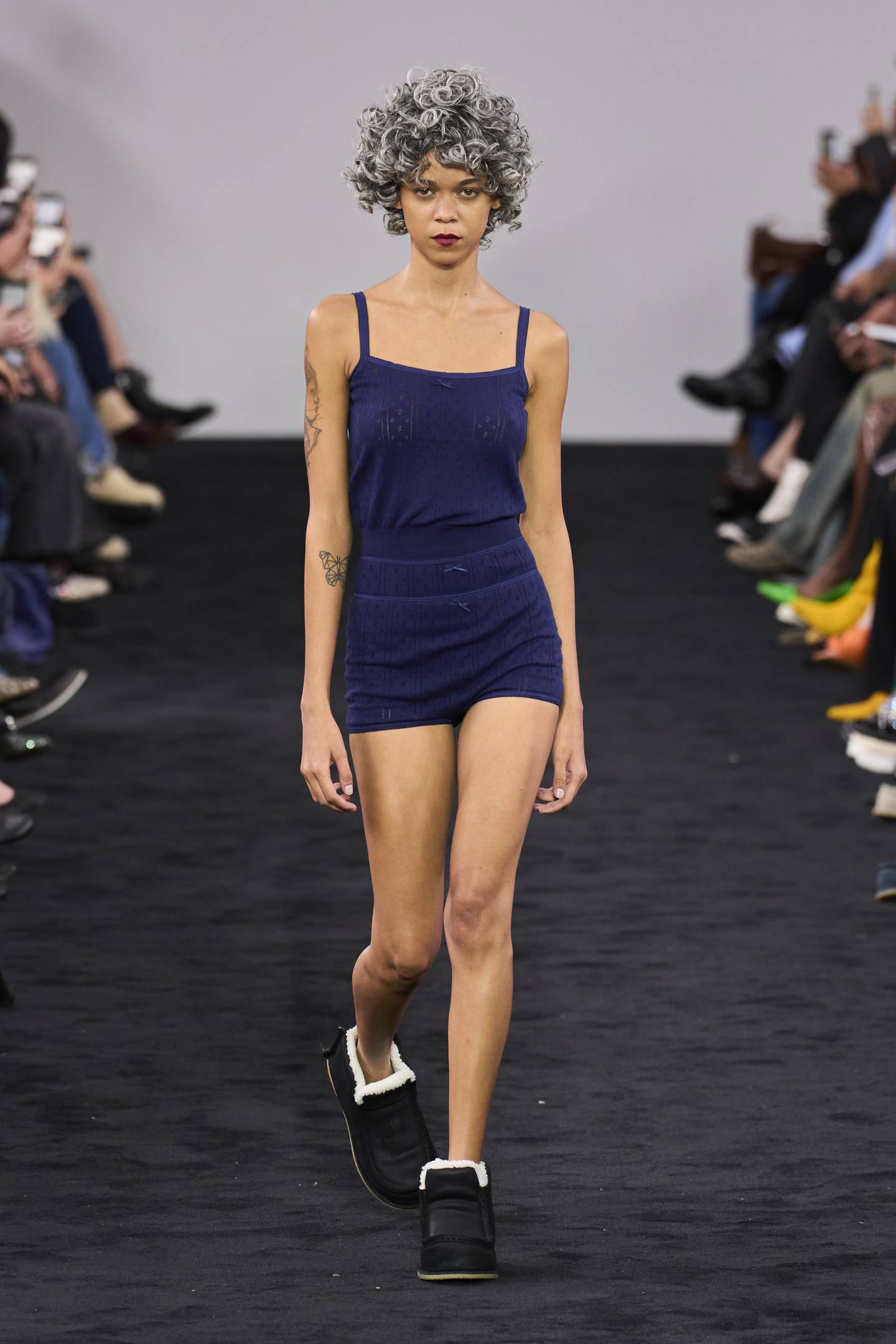
There was a time when nostalgia was a sketchy word, shorthand for the sentimentality whose flipside was memorably nailed by legendary art critic Robert Hughes as viciousness, vivid in the racism, sexism and homophobia which often underpin a yearning for âthe good old days.â But nostalgia had a reboot during London Fashion Weekâs 40th anniversary, starting with the spectacular retrospective of the NEWGEN fashion incubator which Sarah Mower curated at the Design Museum. The enthusiasm with which it was greeted felt like a seedbed for the future.
And the future was what the ever-prescient Jonathan Anderson was talking about while he ruminated on nostalgia after his show on Sunday. Kate Bush topping charts with a 40-year-old song, Tracey Chapman rocking the Grammies⦠Anderson marvelled at âyoung people discovering nostalgia, glorifying it.â At a spry 39, he found his own peculiar corner of the past to exalt with a British show called âLast of the Summer Wineâ which, as well as being the Queenâs favourite, is also the longest-running sitcom in the history of television, clocking in at an impressive 31 series, from 1973 onwards.
The showâs cosy focus on ageing residents in a village in Yorkshire, in the north of England, was reflected in the curly grey wig hats sported by Andersonâs models (the veritable duplicate of a mumsy perm). The clumsy chunk of Brobdingnagian cable knits also suggested a weird cosiness. A huge, structureless, lining-less coat (âBad constructionâ, he agreed) was cut from the herringbone cloth Anderson imagined you would once upon a time buy in the local market, then carve into shape at home with the help of a pattern from John Lewis. (The invitation for the show was helpfully printed on a swatch of the very same fabric.) There were tops and briefs that could have been a Marks and Spencer special from âSummer Wineâ’s early days. The rosettes and ribbons that decorated a simple sweater look were purest rural pony club. And the braiding and tassels that swathed sheer draped dresses echoed the tiebacks and other aspirational design flourishes of country living rooms, and all of this foisted on an audience who accept that Anderson is currently an unimpeachable avatar of cool.
âGrotesque everydayness,â read the notes heâd penned to accompany the show. He described a key archetype in his period piece as the nosy neighbour, tightly wigged, hanging laundry in her backyard. How does this play to his constituency? True, Andersonâs DNA contains a whack of dada, so thereâs a niggling subversive core in everything he does. Here, for instance, the soundtrack started with Labi Siffre, whose dulcet tones troubled the pop charts in the early Seventies as a reassuring alternative to the ambiguities of glam rock. Then Siffreâs sweetness gave way to the anomic cold wave of Montreal duo Essaie Pas. Such haunting aural shifts in Andersonâs shows help to expose their churning dark heart. This particular scenario had a hint of Lynch. I imagined the nosy neighbour being the first to die when a psycho killer hit town.
Actually, Andersonâs revision of nostalgia mightnât have been such a revision after all. If he sensed an excitement about it in his audience, it was possibly because he sees nostalgia speeding things up. âWeâll look at something again, but we will discard it very quickly.â His intuitive grasp of that speed, that need for novelty has made him into fashionâs guru of the discombobulating here and now.
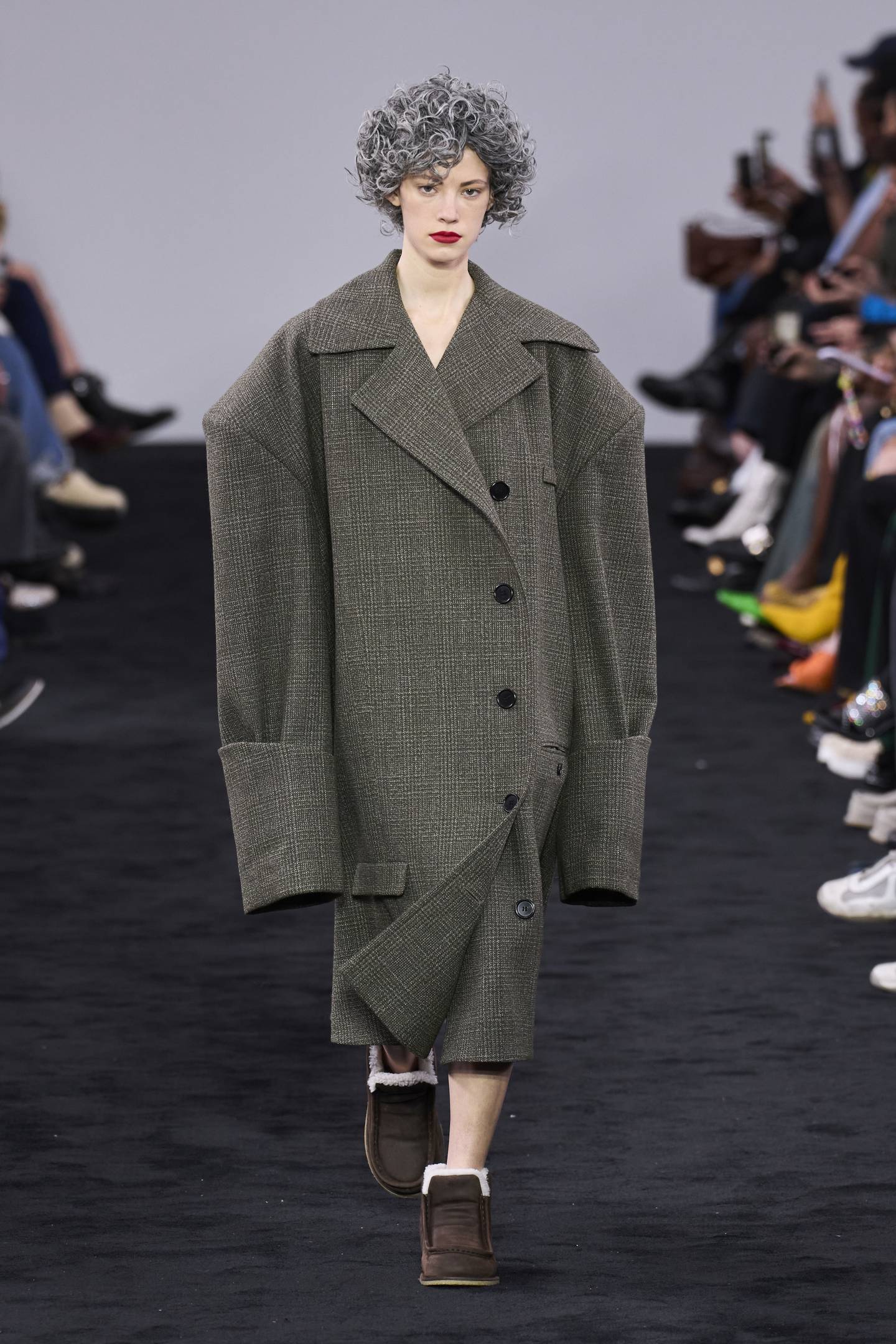
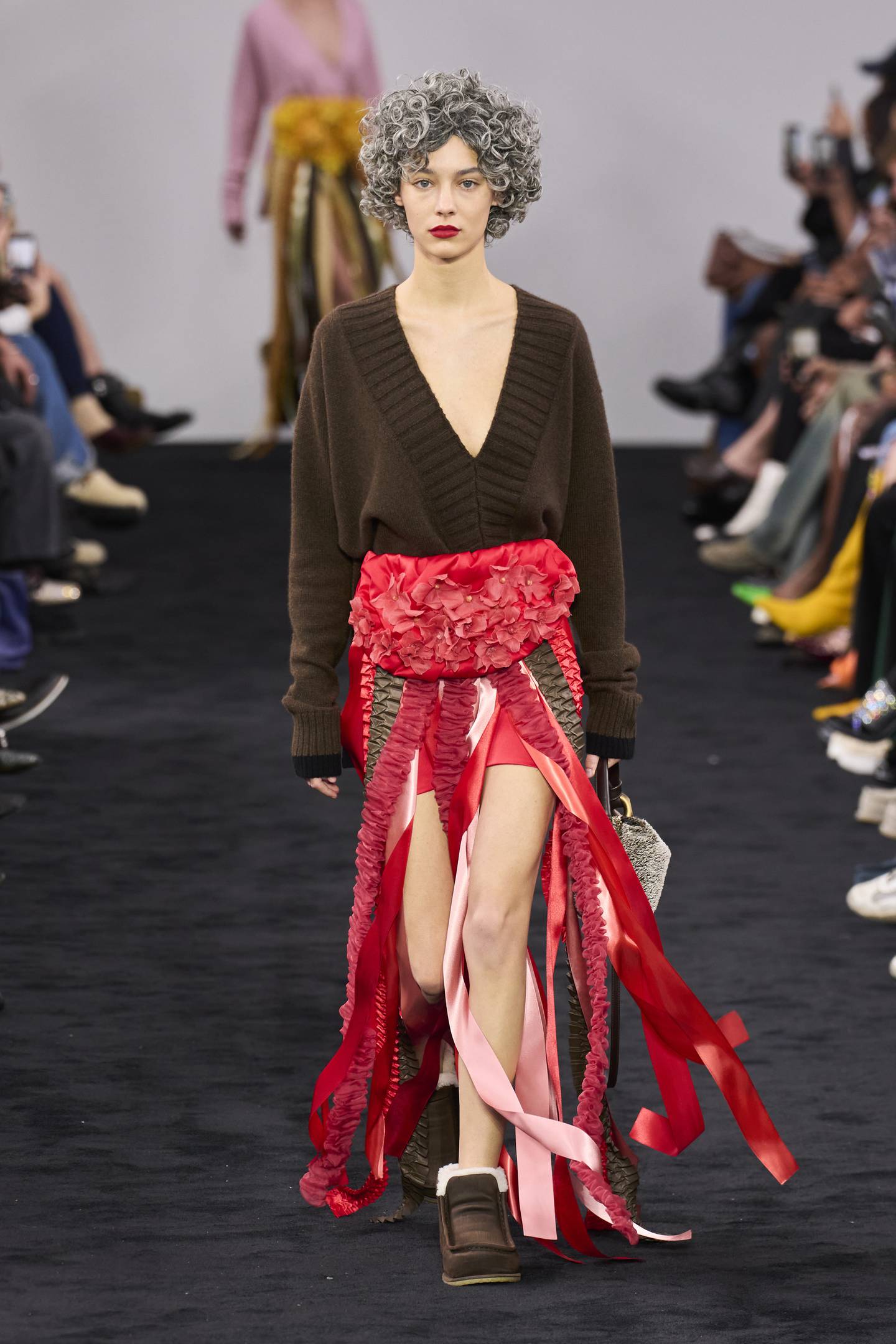
You got the feeling after the Burberry show on Monday night that anything of the good old days would suit the brand just fine right now. âBurberry is one of the names most talked about in the world of fashion,â designer Daniel Lee gamely offered backstage, but itâs hardly for the right reasons. The new strategy hasnât taken, so Lee is now faced with the considerable challenge of making it right.
Broaching the theme of the day, he suggested, âNostalgia is something thatâs comfortable to people in times of change. So itâs nice to draw back on memories ⦠I think thatâs quite tender.â He showed in a huge tournament-worthy tent, from which fluttered pennants bearing the blue Burberry knight. Chivalric, bordering on camp. But there wasnât much tenderness in Leeâs latest descent into Burberryâs very British core. Instead, he opted for broad-shouldered, high-collared, hawkish outerwear with chunky bags and footwear to match. Hard reassurance for hard times. There was also generously cut tailoring which exuded the same heavy feeling, especially in the over-styled layering. But durability and functionality thrummed through Leeâs designs. Nothing too precious, definitely outdoorsy, in tones of mud and moss. Clothes for adventurers. âThatâs the Burberry person,â he proclaimed.
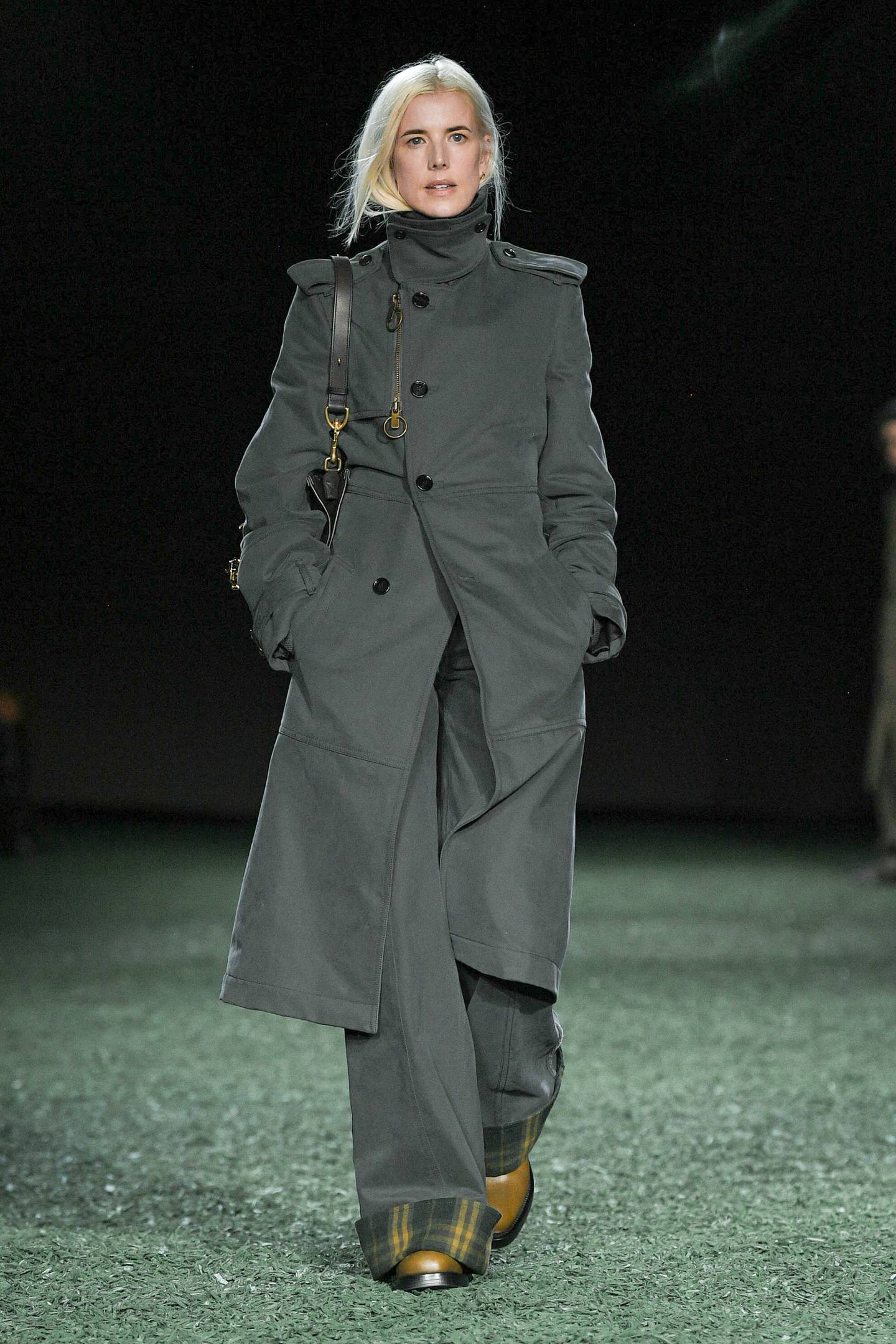
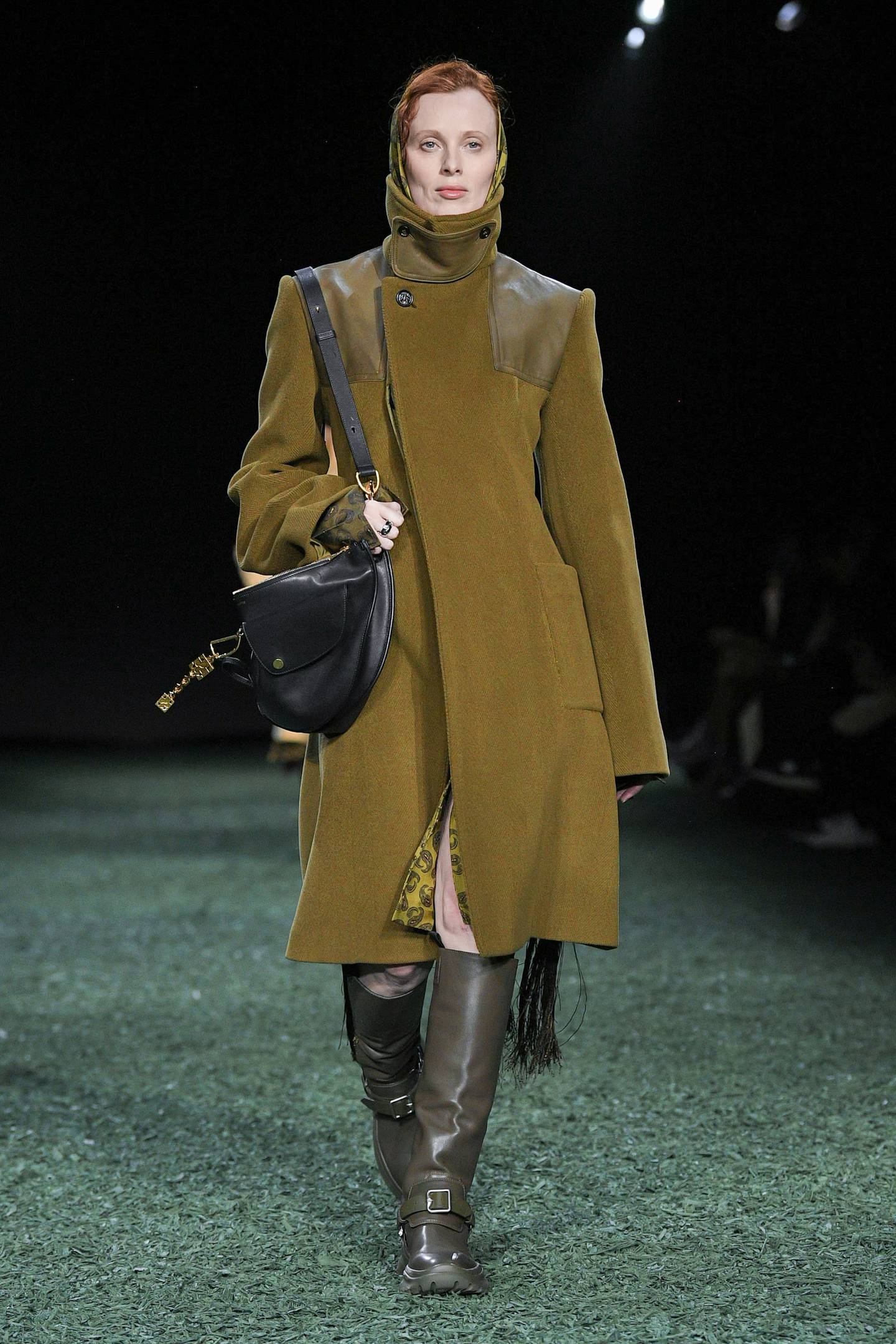
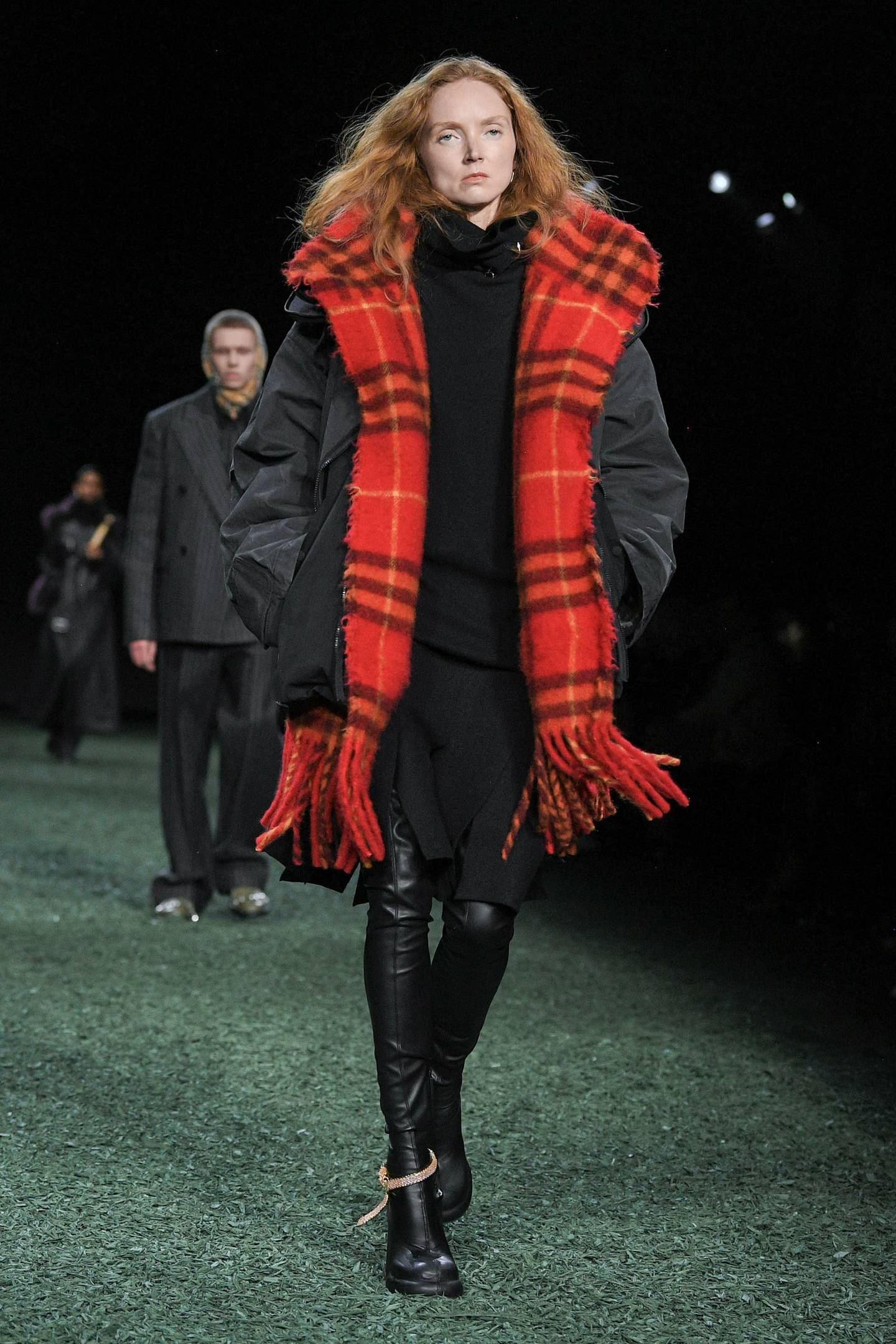
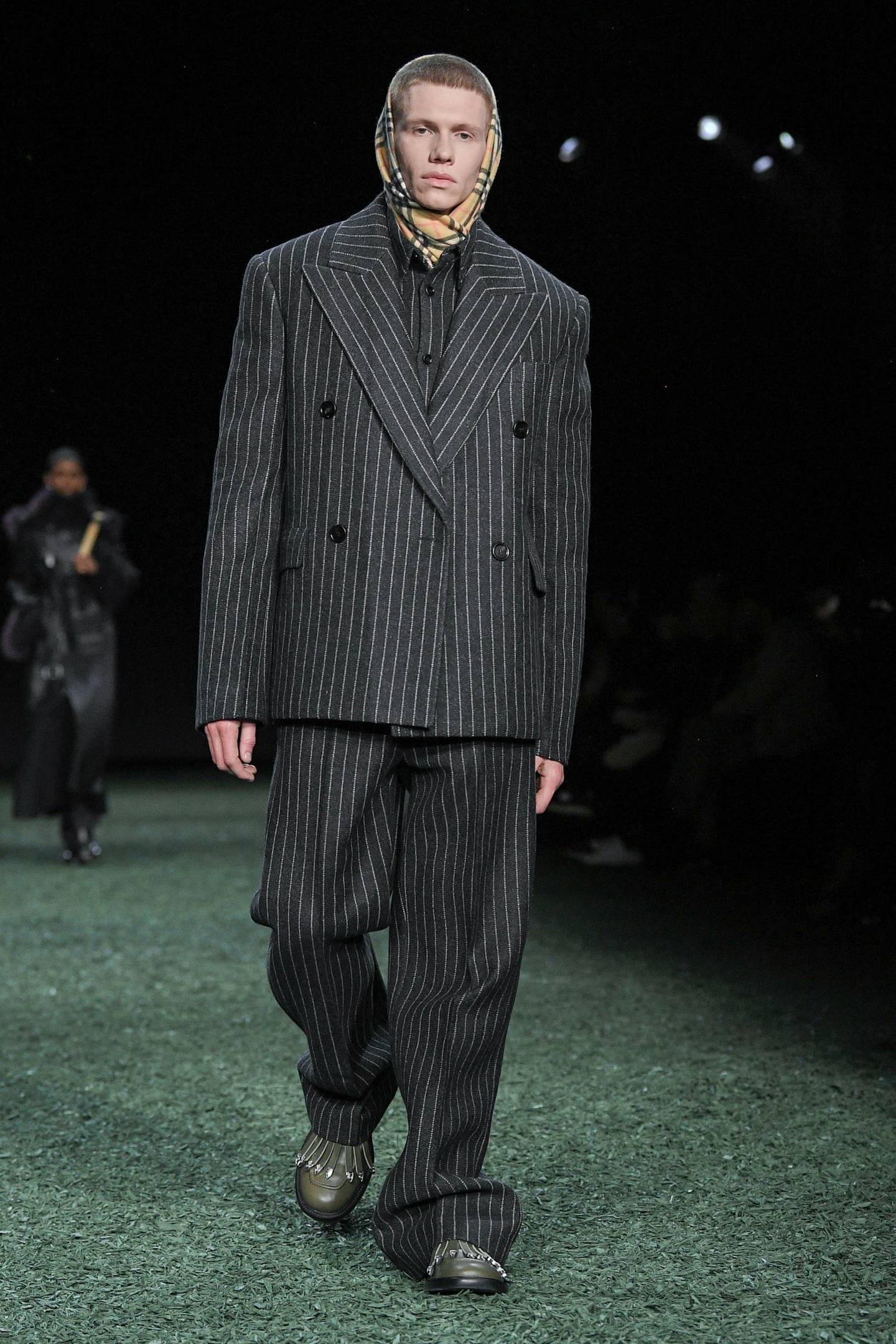
Maybe thatâs where the problem lies. The âBurberry personâ runs such a gamut, from a crowned head to a suedehead, that the focus of the brand has been allowed to wander. Lee acknowledged that by mixing street-y scruffs with a debâs ball of English roses â Agness Deyn, Fran Summers, Karen Elson, the Lilies Cole and Donaldson, the Campbells Jean and Edie â in pursuit of answers to the billion dollar questions: Who is wearing Burberry? And how are they wearing it?
Iâve always fancied the fundamental Britishness of Burberry lives in a black and white film from the 1940s: country house setting allowing for the odd bias-cut cocktail dress, lots of country walks wrapped up well in big mufflers and coats that keep out wind and rain, true Brit clothes that donât mind dogs and dirt. Memories in monochrome There was a restorative element of this â a kind of back-to-basics flair in the collection Lee showed on Monday, and barely a whisper of that damn blue. The suedeheads in their over-sized striped suits even looked like recently demobbed army boys in another of those 40â²s films. But will these clothes help Burberry get the answers they need? We should know soon enough.


